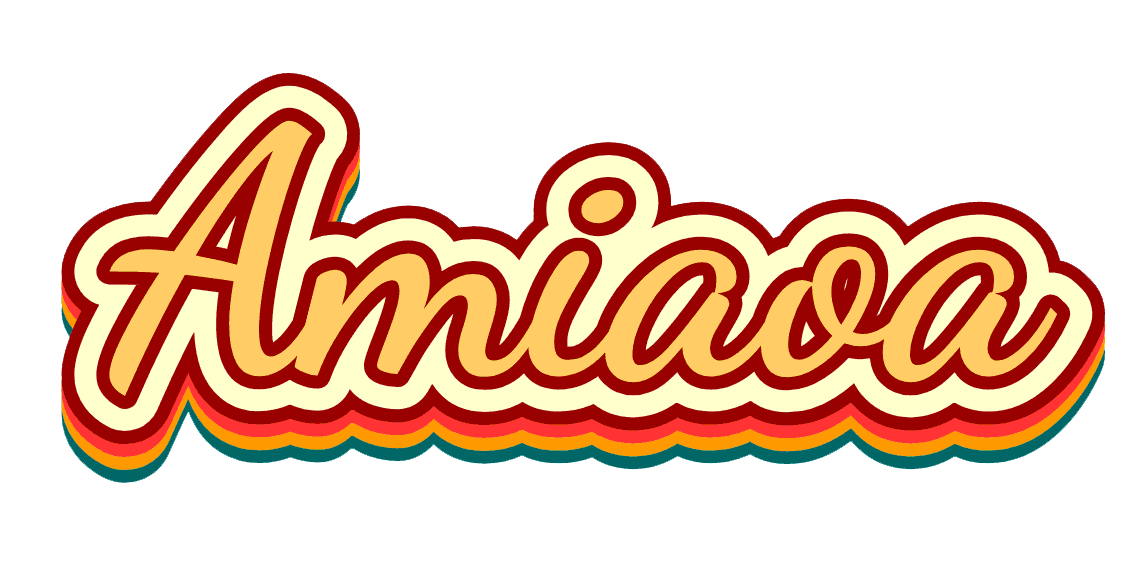Are you wondering what the best omega-3 for brain health is? The answer is simple: omega-3 fatty acids are crucial for maintaining and enhancing brain function! These essential nutrients, particularly DHA, play a vital role in supporting cognitive performance, memory, and even mood. As we dive into this article, I’ll guide you through the best sources of omega-3s, whether from food or supplements, and how to effectively incorporate them into your daily routine. So, if you're ready to supercharge your brain health, let's get started! 🧠✨
E.g. :Unlock Your Brain’s Potential: 5 Natural Supplements for Optimal Brain Health
- 1、Why Omega-3s Are Your Brain's Best Friend 🧠
- 2、Finding the Best Omega-3 Sources 🎣
- 3、Supplement Smarts: Choosing the Right Omega-3 💊
- 4、Omega-3s Through the Ages 👶👵
- 5、Omega-3 Myths Busted! 💥
- 6、Making Omega-3s Part of Your Daily Life 🍽️
- 7、The Science Behind Omega-3s and Your Brain 🔬
- 8、Omega-3 FAQs Answered 🤔
- 9、Final Thoughts on Omega-3s and Brain Health 💭
- 10、FAQs
Why Omega-3s Are Your Brain's Best Friend 🧠
The ABCs of Omega-3 Fatty Acids
Hey there! Let's talk about these magical nutrients called omega-3s. Your body can't make them, which means you've gotta get them from food or supplements - kind of like how you can't make pizza appear in your fridge without ordering it first! 😉
The three main types are:
- ALA (from plants like flaxseeds)
- EPA and DHA (from fish and algae)
How Omega-3s Supercharge Your Thinking
Ever feel like your brain's running on dial-up internet? Omega-3s can help upgrade you to fiber optic speed! Here's why:
Did you know that people who eat fish regularly have more gray matter in their brains? That's the stuff responsible for processing information. In one study, folks eating fish weekly had brain volumes equivalent to people 3-4 years younger!
| Brain Benefit | How Omega-3s Help |
|---|---|
| Memory | Helps form new neural connections |
| Focus | Improves neurotransmitter function |
| Mood | Reduces brain inflammation |
Finding the Best Omega-3 Sources 🎣
 Photos provided by pixabay
Photos provided by pixabay
Fish vs. Plants: The Great Omega-3 Showdown
So what's better - salmon or flaxseeds? Well, it's complicated (like choosing between pizza and tacos - both are awesome!).
Fatty fish like salmon give you ready-to-use DHA, while plants provide ALA that your body has to convert. The conversion rate? About 5-10% at best. That's like trying to fill a swimming pool with an eyedropper!
Top 5 Omega-3 Power Foods
Here's my personal hit list of brain-boosting foods:
- Wild-caught salmon (3 oz = 1.5g DHA+EPA)
- Sardines (the tiny but mighty champs!)
- Walnuts (great for snacking)
- Chia seeds (sprinkle them on everything)
- Algal oil (perfect for vegans)
Pro tip: If you're going the fish route, smaller fish like sardines have lower mercury levels than big predators like tuna.
Supplement Smarts: Choosing the Right Omega-3 💊
Reading the Label Like a Pro
Ever stared at a supplement bottle feeling more confused than a chameleon in a bag of Skittles? Here's what really matters:
Look for:
- EPA+DHA amounts (not just total fish oil)
- Third-party testing seals
- Enteric coating (prevents fishy burps - trust me, you want this!)
 Photos provided by pixabay
Photos provided by pixabay
Fish vs. Plants: The Great Omega-3 Showdown
Before you buy, ask yourself:
"Does this product list the actual EPA and DHA content per serving?"If not, put it back! Many brands hide behind "1,000mg of fish oil" while only providing 300mg of actual omega-3s.
And here's a fun fact: Krill oil might be better absorbed than fish oil, but you typically need fewer capsules of fish oil to get the same amount. It's like choosing between drinking from a firehose or a garden hose!
Omega-3s Through the Ages 👶👵
Brain Building Blocks for Kids
Did you know a baby's brain grows to 80% of its adult size by age 3? That's why pregnant moms and kids need extra DHA - it's like giving their brains premium construction materials!
Funny story: My nephew refused to eat fish until we called salmon "brain candy." Now he asks for it by name! Sometimes all it takes is creative marketing. 😄
Keeping Sharp as We Age
Here's a scary thought: After 40, our brains shrink about 5% per decade. But omega-3s can help slow this down!
In the Framingham study, people with higher DHA levels had:
- 47% lower dementia risk
- 39% lower Alzheimer's risk
Omega-3 Myths Busted! 💥
 Photos provided by pixabay
Photos provided by pixabay
Fish vs. Plants: The Great Omega-3 Showdown
Nope! Quality varies more than Texas weather. Some key differences:
Molecular distillation removes toxins but can damage the oil. Cold processing preserves quality but may cost more. It's like choosing between fresh-squeezed and concentrate orange juice.
"You Can Get Enough From Plants Alone"
Technically true... if you're a rabbit! For us humans, you'd need to eat 10+ tablespoons of flaxseed daily to match the DHA in one salmon fillet. That's a lot of flax!
But if you're vegan, algal oil is your best bet. One brand I like provides 500mg DHA per capsule - same as 3 oz of salmon!
Making Omega-3s Part of Your Daily Life 🍽️
Easy Ways to Eat More Omega-3s
You don't need to become a sushi chef! Try these simple swaps:
- Use walnut oil in salad dressings
- Add chia seeds to smoothies
- Swap mayo for mashed avocado
- Try canned sardines on crackers
When Supplements Make Sense
Let's be real - nobody eats perfect every day. That's where supplements come in handy. But how do you know if you need one?
"Does the thought of eating sardines make you gag?"If yes, supplements might be your ticket. Just remember - they're supplements, not substitutes. Like how multivitamins don't replace eating veggies!
My personal routine? I take 1,000mg EPA+DHA daily and eat fish twice a week. It's like having insurance for my brain cells!
The Science Behind Omega-3s and Your Brain 🔬
How Omega-3s Work Their Magic
Imagine your brain cells are like smartphones. Omega-3s are the:
- Battery (energy production)
- Screen protector (cell membrane health)
- Software update (neurotransmitter function)
Cool fact: DHA makes cell membranes more fluid, helping brain cells communicate faster. It's like upgrading from snail mail to texting!
What Research Really Shows
Some studies show amazing benefits, while others are meh. Why the mixed results?
Turns out omega-3s work best when:
- You're deficient to start with
- You take them consistently for 3+ months
- You combine them with other healthy habits
Omega-3 FAQs Answered 🤔
"Can You Take Too Much?"
Possible, but unlikely. The FDA says up to 3g daily is safe. To overdose, you'd need to eat 15+ servings of salmon daily - at which point you'd probably turn into a mermaid first!
Seriously though, high doses (over 5g) might thin your blood. If you're on blood thinners, check with your doc first.
"Do Omega-3s Expire?"
Yes, and rancid oil is about as useful as a chocolate teapot! Signs your supplements have gone bad:
- Strong fishy smell
- Cloudy appearance
- Bitter taste
Final Thoughts on Omega-3s and Brain Health 💭
Small Changes, Big Benefits
You don't need to overhaul your life to boost your brain health. Start small:
- Add walnuts to your oatmeal
- Try salmon instead of chicken once a week
- Consider a quality supplement
Remember, your brain is always "on" - even when you're sleeping. Giving it quality fuel makes everything work better, from remembering names to nailing that presentation at work!
The Bottom Line
Omega-3s aren't just another health fad - they're essential nutrients with decades of research behind them. Whether through food or supplements, making them part of your routine is one of the smartest investments you can make in your long-term brain health.
Now if you'll excuse me, I'm off to eat some "brain candy" (aka salmon) for lunch! 🍣
To wrap things up, it's clear that the best omega-3 for brain health is not just a catchy phrase—it's a vital component for maintaining and enhancing our cognitive functions. We've explored how these essential fatty acids, particularly DHA, play a crucial role in memory, focus, and even mood regulation. With simple dietary swaps and the right supplements, we can easily incorporate more omega-3s into our lives. Don't forget, whether it's enjoying a delicious salmon fillet or taking a quality supplement, you have the power to boost your brain health significantly. So, I encourage you to start making these small changes today. If you found this information helpful, I'd love to hear from you! Share your thoughts or experiences in the comments below, and let’s keep this conversation going. Remember, prioritizing your brain health now can lead to a sharper, healthier mind in the years to come! 🧠💪
E.g. :Fish oil: friend or foe? - Harvard Health
FAQs
What Are Omega-3 Fatty Acids and Why Are They Important?
Omega-3 fatty acids are essential fats that your body can't produce on its own, meaning you need to get them from your diet or supplements. The three main types are ALA, EPA, and DHA. ALA comes from plant sources like flaxseeds, while EPA and DHA are found in fish and algae. These nutrients are crucial for brain health, with DHA making up about 25% of your brain's fat content, acting like the building blocks for cognitive function and overall brain performance. Incorporating omega-3s into your daily routine can help supercharge your thinking and support memory, focus, and mood.

















